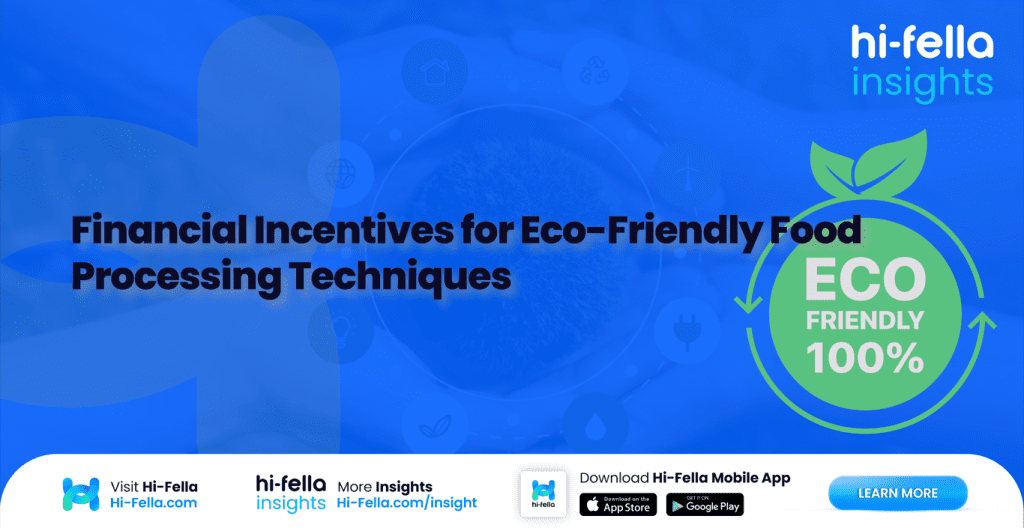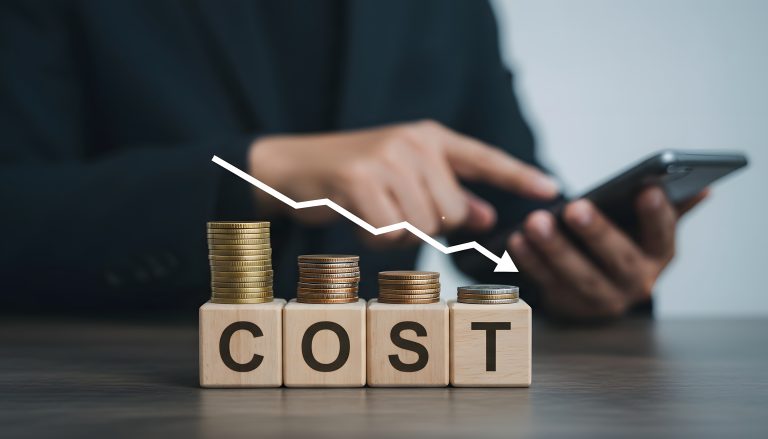For decades, the average food processing plant was a symphony of efficiency focused on one primary goal: turning raw agricultural products into edible goods at the lowest possible cost, preferably at high volume. The accompanying symphony of whirring machinery, steam, and perhaps a faint, persistent industrial odor was simply the soundtrack of progress. Environmental concerns? Well, those were often a delightful afterthought, perhaps addressed with a hastily planted sapling near the parking lot and a shrug.
The idea that being “eco-friendly” could actually save or make you money in this world of industrial transformation seemed about as likely as finding a perfectly ripe avocado that’s also on sale.
But times, and economic incentives, have changed. The pressure is on – from regulators, from consumers, and increasingly, from the cold, hard logic of the balance sheet. Investing in eco-friendly food processing techniques is no longer just about corporate social responsibility reports that nobody reads; it’s about accessing tangible financial benefits that can significantly impact profitability.
It turns out, being less terrible for the planet is rapidly becoming a surprisingly effective way to boost your bottom line. Welcome to the era of the Green Gold Rush, where efficiency meets environmentalism, often with a satisfyingly profitable outcome.
The Eco-nomics of Edible Transformation: Financial Perks of Processing with Principles
The Government’s Green Envelope: Tax Credits, Grants, and Subsidies
Governments, in their infinite wisdom and desire to look good on the global stage, have realized that simply telling companies to be greener isn’t always as effective as paying them to do it. This has led to a delightful (for businesses) proliferation of financial incentives for adopting eco-friendly technologies and practices. We’re talking tax credits for investing in energy-efficient equipment, grants for developing innovative waste reduction systems, and subsidies for using renewable energy sources.
For a food processor, these aren’t just symbolic gestures; they are direct reductions in capital expenditure or operating costs, making the decision to go green significantly more palatable from a financial perspective. It’s the government essentially saying, “Here’s some cash, now please stop making quite so much… stuff… that we have to deal with later.”
The Utility Bill Diet: Energy and Water Efficiency Savings
Processing food is an energy and water-intensive business. Heating, cooling, mixing, cleaning – it all requires power and H₂O. Investing in eco-friendly techniques like energy-efficient motors, optimized refrigeration systems, water recycling processes, and heat recovery technologies directly translates into lower utility bills. This isn’t a one-time grant; it’s a persistent, ongoing reduction in operating expenses that adds up significantly over time.
Think of it as putting your processing plant on a very effective diet – shedding those excess resource costs month after month. The economic incentive here is beautifully simple: use less, pay less.
Turning Trash into Treasure (or at Least Less Expensive Rubbish): Waste Reduction and Valorization
Food processing inevitably generates waste – peels, scraps, wastewater, you name it. Traditionally, dealing with this waste was purely a cost center: landfill fees, wastewater treatment charges. Eco-friendly techniques focus on reducing waste generation in the first place and, more excitingly, valorizing waste – turning it into something else of value. This could be converting organic waste into biogas for energy, extracting valuable compounds (like antioxidants from fruit peels), or creating nutrient-rich animal feed from byproducts.
Economically, this transforms a cost into a potential revenue stream or, at the very least, significantly reduces disposal expenses. It’s the ultimate alchemy – turning what was once destined for the bin into economic gold (or at least a less embarrassing line item on the budget).
The Consumer Compassion (and Their Wallets): Market Demand and Premium Pricing
Consumers, bless their increasingly informed hearts, are paying more attention to how their food is processed and its environmental impact. They are often willing to support brands that demonstrate a commitment to sustainability. This translates into increased market demand for products processed using eco-friendly techniques and, crucially, the ability to charge a premium price for them.
Displaying certifications or highlighting sustainable practices on packaging isn’t just good PR; it’s a way to attract a growing segment of the market willing to pay extra for a clearer conscience (and a reduced environmental footprint).
Staying Out of Trouble (and Avoiding Hefty Fines): Reduced Regulatory Costs
Environmental regulations related to processing plants are becoming stricter, and non-compliance can result in significant fines, legal fees, and reputational damage. Investing in eco-friendly techniques helps companies stay ahead of the curve, ensuring compliance and avoiding costly penalties. It’s the economic benefit of not being on the regulatory naughty list – less stress, fewer lawyers, and no unexpected, budget-busting fines.
The Innovation Accelerator: Driving Efficiency and New Opportunities
Focusing on eco-friendly processing often spurs innovation within a company. Developing new waste reduction methods, optimizing energy use, or implementing cleaner technologies can lead to unforeseen operational efficiencies or even the discovery of new, marketable byproducts. This drive for sustainability can become a catalyst for broader innovation that benefits the company beyond just its environmental footprint.
Attracting the Green-Minded Investors: Access to Capital
The investment world is increasingly looking at Environmental, Social, and Governance (ESG) factors. Companies with strong environmental performance, including eco-friendly processing, are more attractive to investors seeking sustainable portfolios. This can lead to easier access to capital, potentially at more favorable terms. It’s the economic benefit of aligning your environmental performance with the priorities of a growing pool of investors.
The economic incentives for adopting eco-friendly food processing techniques are numerous and increasingly compelling. While initial investments may be required, the long-term savings on utilities and waste disposal, the access to government incentives, the ability to command premium pricing, the mitigation of regulatory risks, and the potential for innovation and investment attraction create a strong financial case. It turns out, being good stewards of the planet is rapidly becoming a smart (and genius) way to process food and boost your bottom line. Who knew that hugging trees could be so profitable?
Greener Processing, Greater Profitability
Eco-friendly food processing is no longer just a sustainability goal—it’s a pathway to cost savings, innovation funding, and preferential market access. With more governments, investors, and buyers offering financial incentives for energy efficiency, waste reduction, and clean technology adoption, food businesses that embrace greener practices are not only future-proofing their operations—they’re unlocking new streams of value.
To scale these efforts globally, hi-fella offers the ideal platform. As a dedicated export-import network and online exhibition provider, hi-fella connects eco-conscious food processors with international buyers and supply chain partners who value sustainable production. Whether you’re showcasing green innovations or sourcing certified inputs, hi-fella helps you trade smarter, cleaner, and with greater impact.








